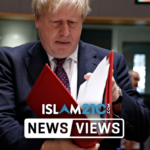Pakistan have flourished since implementing a community-based approach that heightens the service of health, education, and other social issues in the country. [1]
The idea for the newly adopted welfare state began more than 50 years ago. Countries such as Indonesia, Tanzania, and Guatemala started an initiative to train local people to become community health workers to provide treatments for not only themselves, but also for their neighbours, in a collective effort to prevent and manage disease.
Now, the same idea that first started with female health workers in low- and middle-income families has been picked up in high-income localities, with New York now having an established network.
Pakistan’s aim to build a sustainable welfare state is reminiscent of a prophetic community. Ehsaas, which means ‘empathy’ in Urdu, is the name given to this initiative, which has become one of the most holistic welfare programs undertaken by any modern-day national government. The primary purpose of Ehsaas is to create a safe and healthy social space for the country that could benefit millions of lives.
One of the aims of Ehsaas is to end the poverty that a quarter of the Pakistani population live in. With one of the fastest growing populations not only in Asia but in the world, Pakistan will have to create a one million new jobs each year in order to keep up with the number of young people reaching the working age and entering the job market.
Furthermore, with education and health prospects looking scarce, Ehsaas seeks to end this repeated cycle by incorporating 134 policies created to tackle corruption, create more opportunities for education, and provide the elderly with decent homes.
These policies have been driven by Dr. Sania Nishtar, who is the programme’s lead and special assistant to the Pakistan Prime Minister Imran Khan. Both Dr. Nishtar and Prime Minister Khan acknowledge that a comprehensive approach is required to create the envisioned Ehsaas state, or else it would not be possible.
Other countries should take a proactive step to learn from the unique and innovative approach of Ehsaas. The programme is specifically targeted to take children out of poverty, create equal educational opportunities for girls and boys while monitoring school attendance using biometric identification. The programme also ensures that millions of young people have the skills and social safety nets to flourish, all while empowering some of the most marginalised women to use the latest mobile technology.
There is undoubtedly a long journey ahead for the Ehsaas program, which is still in its early phases. However, the move has been the first public policy in Pakistan that has been developed in this way, promoting a new sense of transparency between the leadership and the people. With this blueprint to build a welfare state in Pakistan, we hope its impact will go far beyond the borders of Pakistan and become a blueprint for other nations.
[donationbanner]
Source: www.islam21c.com
Notes:
[1] https://www.telegraph.co.uk/global-health/climate-and-people/pakistan-leading-way-welfare-state-world-can-learn-innovation/









